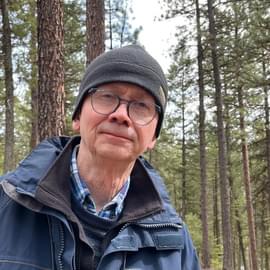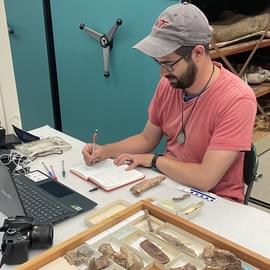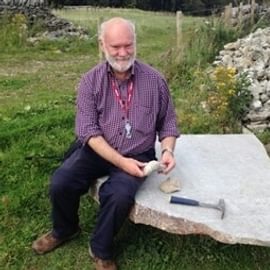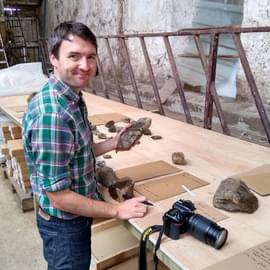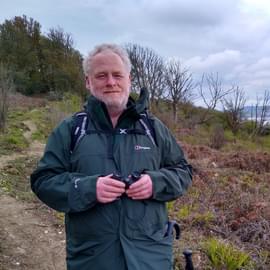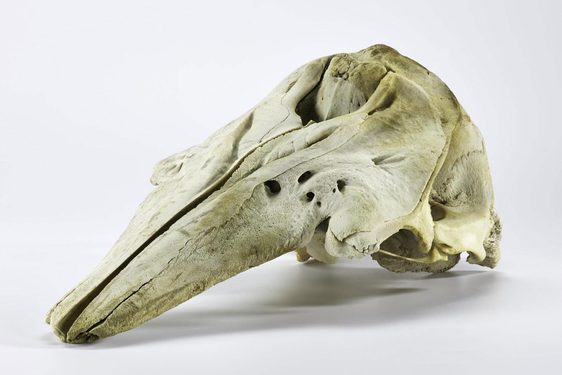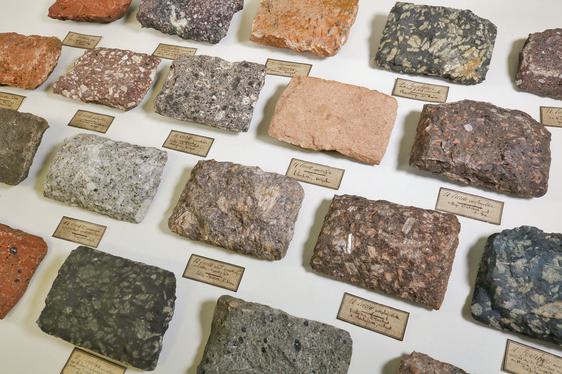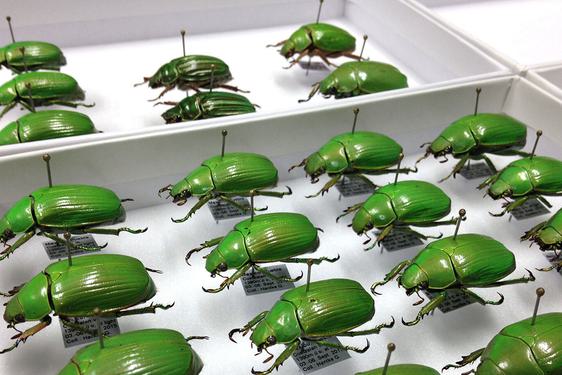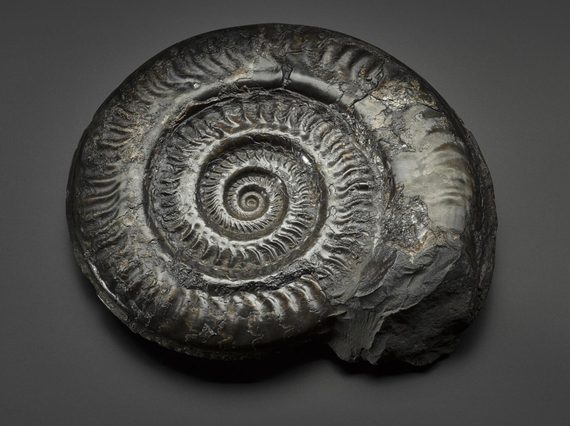
Palaeobiology
The Palaeobiology collections are housed in a modern purpose-built environmentally-controlled store, and comprise around 250,000 specimens, of which two per cent are very important type or figured specimens.
Our collection covers all the major groups of fossil invertebrates, vertebrates, plants and trace fossils.
Many of the specimens were collected from around the world from the early nineteenth century onwards, but particularly from important Scottish Palaeozoic localities.
Many of the specimens are historically important and were collected by early pioneers of Scottish Palaeontology such as Hugh Miller and Charles Peach.
The collections continue to be studied by the Palaeobiology team and visiting researchers. They are also being enhanced by field collection, as well as acquisitions from private collectors, to fuel further research or for exhibition purposes.
Scotland’s Palaeozoic rocks represent important windows through which crucial stages in the early evolution of life on Earth can be viewed. In particular, our collections are renowned worldwide for specimens of eurypterids and plants, and our fossil fish and early tetrapod collections are among the largest and most diverse in the world.
Early Carboniferous (360-345 million year old) fossils are helping to answer long-standing questions about the early evolution of terrestrial animals during a time when little is known about life on land. This study contributed to a major collaborative research project: TWeed (Tetrapod World: early evolution and diversity) paleobiology research project.
We received a grant from the John Ellerman Foundation to investigate fossil and other natural sciences collections in museums around Scotland. For more information see Natural Science Collections Across Scotland.
In addition, National Museums Scotland is part of an international team in a five-year project funded by UNESCO, aimed at better understanding the dynamics of biodiversification during the Early Palaeozoic. In close collaboration with the International Sub-commission on Ordovician Stratigraphy, the project aims to fill numerous knowledge gaps in most regions of the world with a special focus on less-documented time intervals.
Meet the team
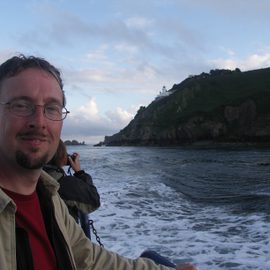
Dr Andrew Ross
Principal Curator of Palaeobiology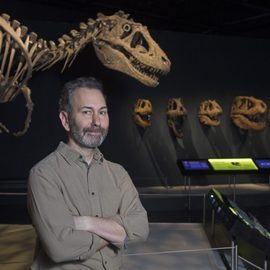
Dr Stig Walsh
Senior Curator of Vertebrate Palaeobiology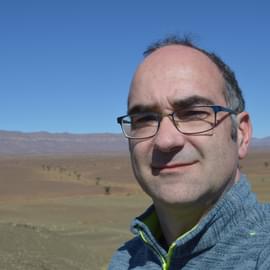
Dr Yves Candela
Curator of Invertebrate Palaeobiology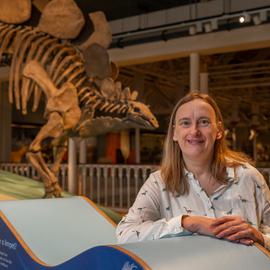
Dr Sarah Stewart
Assistant Curator of Palaeobiology
Vicen Carrió, ACR
Palaeobiology Conservator / Preparator
Dr Nick Fraser
Keeper of Natural Sciences- she / her
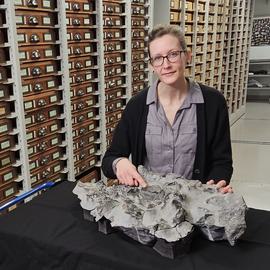
Dr Elsa Panciroli
NERC Independent Research Fellow
Research Associates
Palaeobiology stories
- Discover
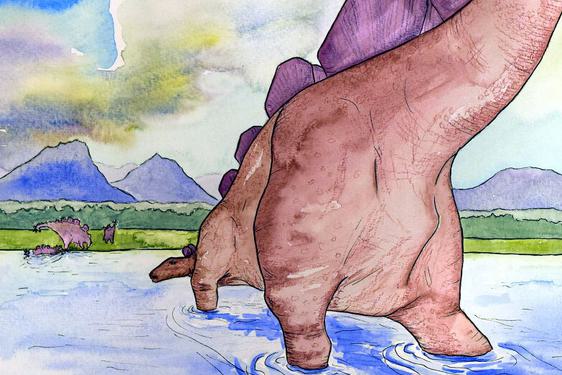
Discovering dinosaur bones on a Scottish island
Dr Elsa Panciroli was walking along the shore of the island of Eigg when something caught her eye. She had stepped on a boulder, but there was something unusual buried in it.Dr Panciroli, a Research Associate at National Museums Scotland,… - Discover
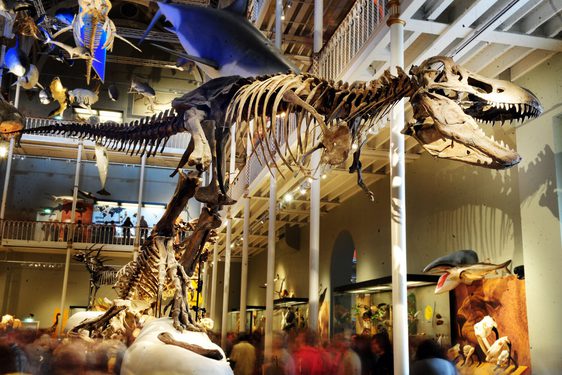
Tyrannosaurus rex
It is 66 million years since Tyrannosaurus rex (T. rex) actually walked the earth. But the T. rex at the National Museum of Scotland brings people as close as possible to appreciate the scale and power of the real thing. - Discover
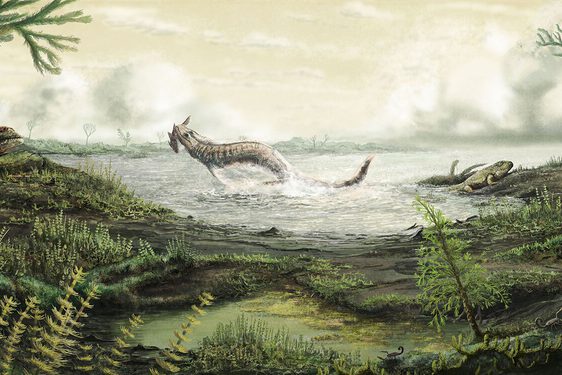
The mysterious 15 million year gap in our evolution
If the first four-legged animals had never emerged from water onto land, our world today would not exist. Yet how did this great step happen? For decades, scientists didn’t know. Now, the mystery is finally being solved – and fossils…

